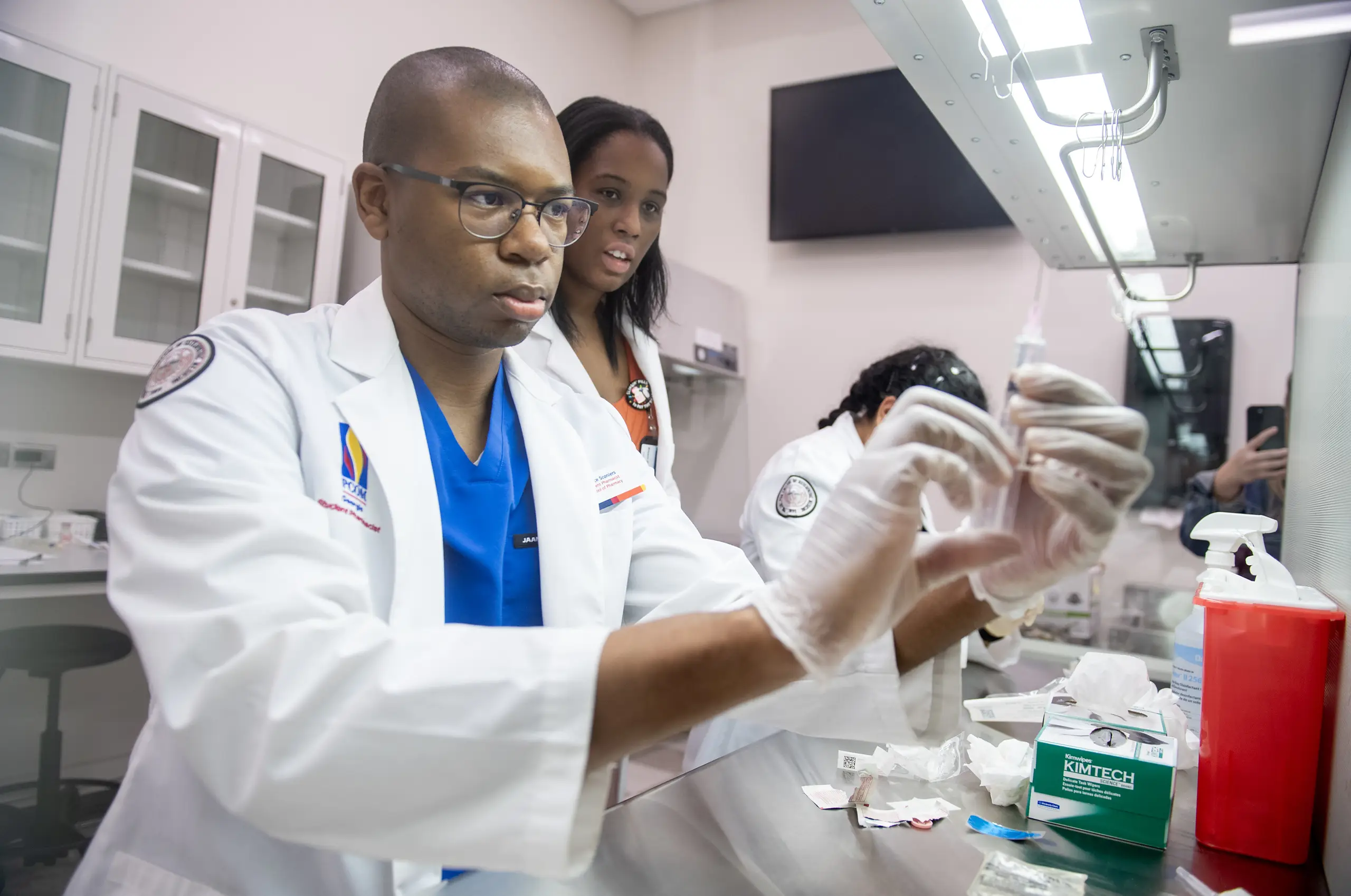During their training, pharmacy interns are expected to cultivate a range of soft
skills that are critical to professional success. Communication skills, leadership
skills and networking skills are among the most important attributes students are
expected to develop during their internships, Wickman noted.
Through their supervised work, pharmacy interns gain exposure to not only technical
tasks like compounding or vaccine administration, but also to the human side of pharmacy—interacting
with patients, collaborating with healthcare professionals, and navigating the ethical
and regulatory responsibilities of the profession.


